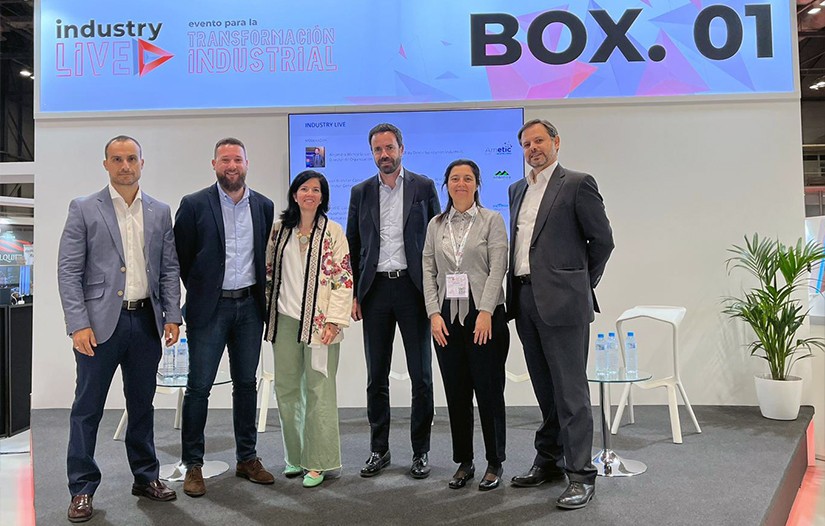Green algorithms to drive sustainable transformation in industry

GMV took part in a round table discussion on industrial decarbonization at the Industry Live event. In this debate hosted by AMETIC, Ángel C. Lázaro Ríos, Head of Robotics and Automation of GMV's Industry Sector, explained how digitalization is contributing to decarbonization by using advanced data-processing technologies and developing green algorithms that enable processes to be modeled using artificial intelligence to make them much more sustainable.
The presentation of several projects that exemplified the successful integration of innovative technologies to improve efficiency and sustainability was one of the roundtable's highlights. These projects served as inspiring examples of how technological solutions can contribute to reducing carbon emissions and improving resource management in the industry.
For example, speakers discussed the AgrarIA project, led by GMV, which aims to make Spain's agrifood sector more technological, innovative, sustainable, and committed to energy efficiency and carbon footprint reduction. Among its activities, work is being done on the use of AI to treat and produce pesticide products, optimize electricity consumption in cold rooms to reduce dependence on the grid and increase the use of sustainable energy based on predictions of warehouse arrival and departure, optimize supplies in fields based on weather forecasting models and digital twins of entire farms, etc.
AgrarIA is funded through the Artificial Intelligence R&D Missions Program of the State Secretariat for Digitalization and Artificial Intelligence (SEDIA) of the Ministry of Economic Affairs and Digital Transformation (File No. MIA.2021.M01.0004), corresponding to the funds of the Recovery, Resilience and Transformation Plan.
The remainder of the discussion centered on the importance of embracing technological advances and energy innovation as critical drivers of decarbonization. Participants emphasized that traditional industrial processes must undergo a transformative shift towards sustainable practices to effectively combat climate change with technologies, such as IoT and Artificial Intelligence, without forgetting interoperability.
Regarding interoperability, as part of the AgrarIA project, we are working on developing and implementing a data space for the agriculture industry. The aim is to produce a single platform that combines a variety of cross-cutting technologies, which can be put to a variety of uses across the food and agriculture value chain: production, transformation, and distribution. These data spaces will allow for voluntary sharing of data, under a system of common governance and security mechanisms, as a way to make the food and agriculture industries more technological, innovative, and sustainable.